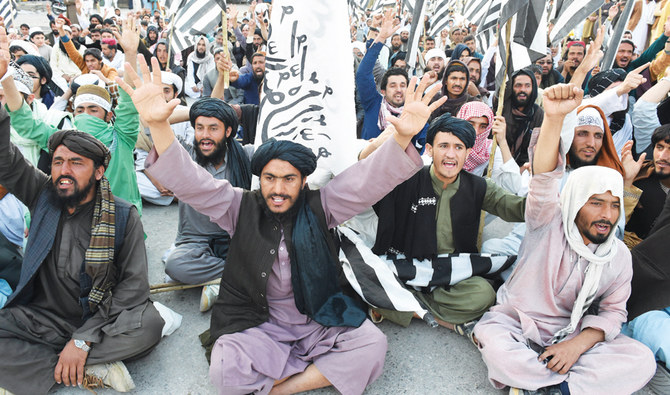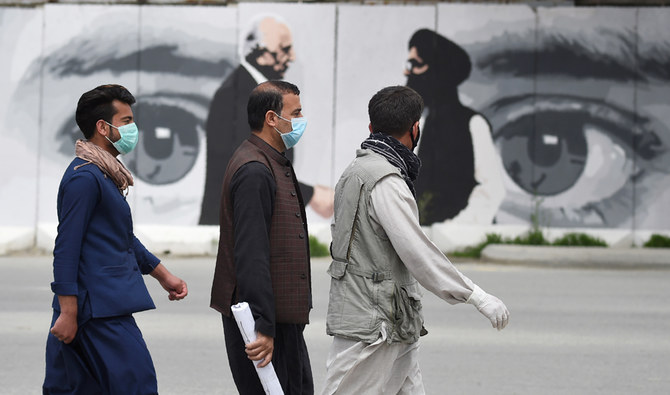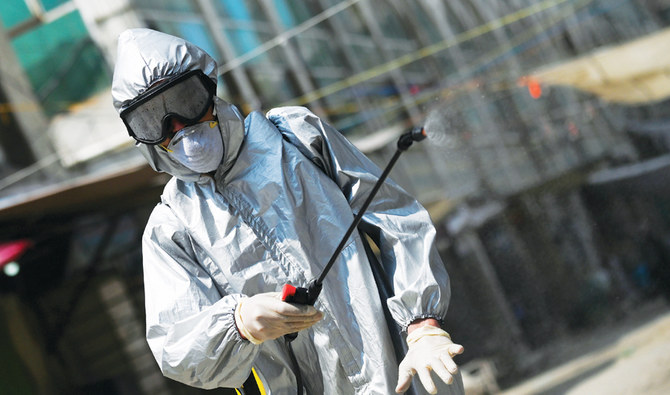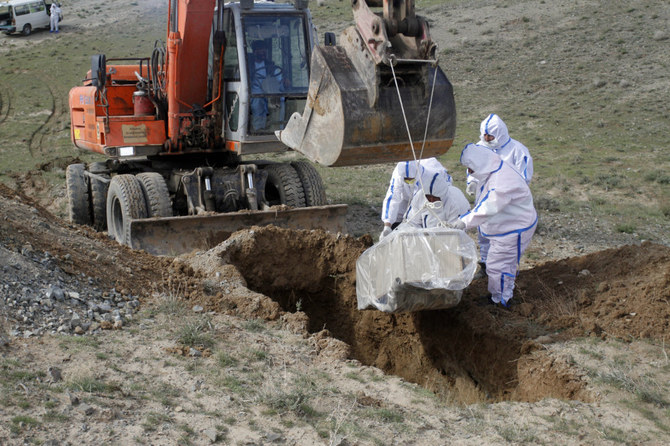KABUL: Afghanistan, which has long suffered from political dysfunction and conflict, now faces an even more chilling threat from the coronavirus pandemic.
If the country is not put on a war footing, according to a report in The Diplomat quoting the Afghan Public Health Ministry, more than 25.6 million Afghans could become infected by the virus and 110,000 might die.
On Feb. 24, Afghanistan confirmed its first coronavirus case: A 35-year-old man from Herat, the country’s third-largest city, who had recently returned from the city of Qom in neighboring Iran.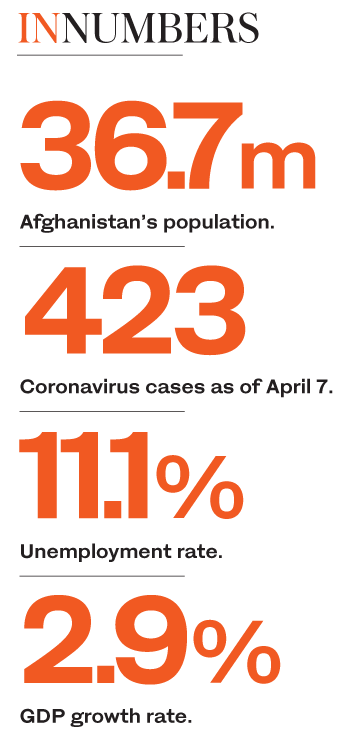
As of April 7, there were 423 confirmed cases of coronavirus in Afghanistan, with 14 deaths across 22 provinces. Those figures could be masking the actual number of infections, given the paucity of kits for carrying out tests.
If patients turn up at a hospital in Kabul with just 100 beds and no running water, there would be serious repercussions for the entire staff, according to doctors.
“Hospital staff have been buying water every day from tankers stationed outside,” Dr. Najmusama Shefajo, an obstetrician-gynecologist based in Kabul, told Arab News.
“How can you expect a major hospital in the heart of Kabul to continue handling surgeries and childbirths while handling coronavirus cases? These doctors have no gloves or water to wash their hands.”
When the news of hundreds of deaths caused by the virus first appeared in China late last year, Afghans had mixed views on the issue.
Some considered the new coronavirus to be man-made or an attempt to block China from becoming a global superpower. Others bragged that their Islamic piety gave them immunity against the virus.
It was only last month, after coronavirus cases swelled in neighboring Iran and, more recently, in the birthplace of Islam, Saudi Arabia, that the contagion became a source of deep concern for the Afghan people.
They realized that coronavirus recognized no border, religion or race, and that any one of them could be struck down by it. “Coronavirus puts us in a dangerous situation,” Torek Farhadi, a former government adviser, told Arab News as governments worldwide began enforcing lockdowns of cities and encouraging social distancing among other precautionary measures.
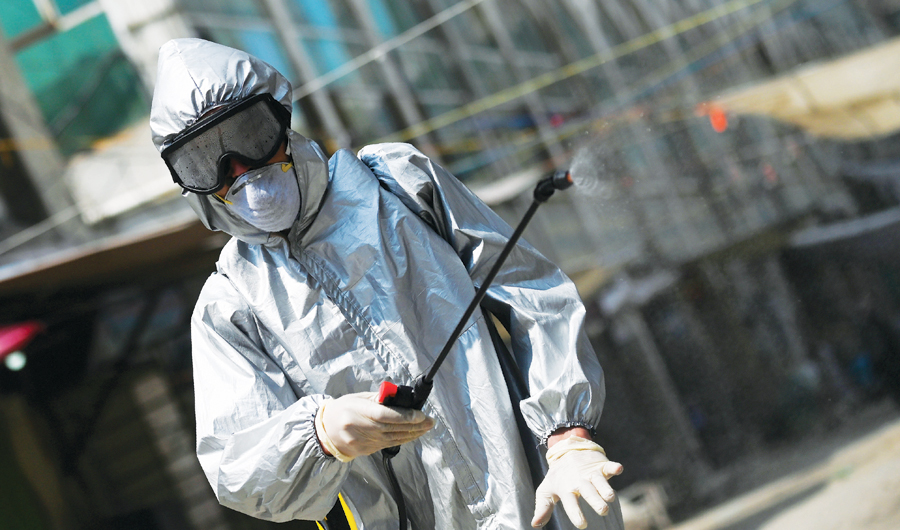
Wracked by violence and conflict since the Soviet invasion in 1979, Afghanistan lacks the health-care system and public-services infrastructure required to deal with an infection.
Those who can afford the cost usually travel to India, Pakistan or Iran for treatment, spending upward of $350 million annually in those countries.
Failure to contain the coronavirus outbreak in its early stages has led to a situation that many consider a looming public-health disaster.
The city most at risk is arguably Herat, near the border with Iran. Afghans who live there are linked inextricably to Iran through ties of culture, trade and commerce.
Media reports citing Health Ministry officials say more than 90 percent of the country’s coronavirus cases can be traced to Afghans who have recently returned from Iran.
While the exact figure is impossible to ascertain, there is little doubt about the connection between Iran’s epidemic and the outbreaks in Afghanistan and Pakistan.
There are around 2 million Afghan workers in Iran, and many have recently lost their jobs due to the pandemic. This has caused more than 130,000 Afghans to flee Iran, one of the worst-affected countries, with 62,489 confirmed cases and 3,872 deaths as of Tuesday.
Afghans returning home, in what is likely one of the biggest cross-border movements of the pandemic, are now a threat to their country’s fragile public-health system.
“There are no more than a few ventilators and artificial respirators, so if there’s an outbreak in Afghanistan, as is the case in most least-developed countries, most of the patients would die,” Farhadi said.
“People understand that (the coronavirus outbreak) is something far beyond the control of the government.”
Last month, a coalition of private doctors in Kabul held a meeting to discuss a strategy to address the looming health crisis.
Many who participated in the meeting said the public-health system suffered from a shortage of so many critical items that the full impact of the coronavirus outbreak was impossible to predict.
Farhadi said if the highly contagious disease spreads to Afghanistan’s jails, Taliban prisoners will start to die. There is also the risk of government soldiers getting infected in large numbers on the front lines and becoming further demoralized as a result.
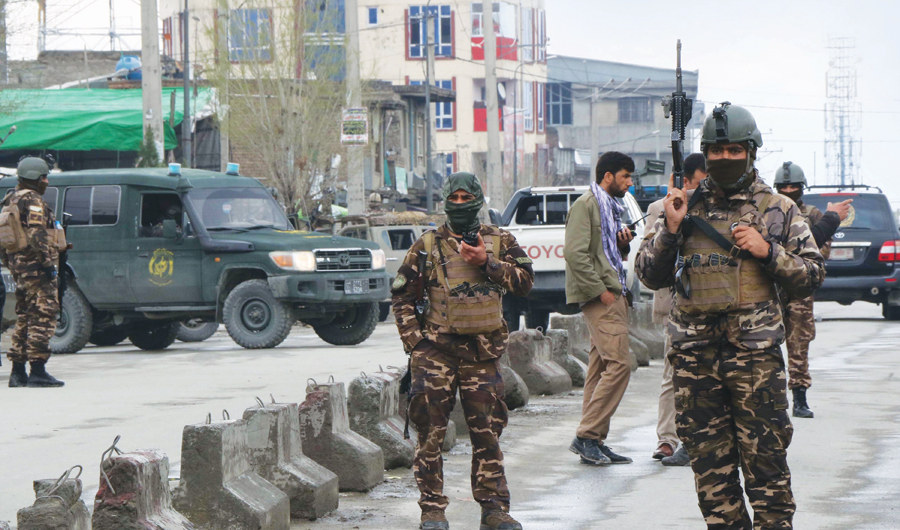
The coronavirus outbreak coincides with a period of renewed political uncertainty in Kabul in addition to an imminent US troop withdrawal.
The festering dispute over the 2019 presidential election has succeeded in deflecting public attention from the deepening coronavirus outbreak.
Last month, US Secretary of State Mike Pompeo flew to Kabul determined to broker a deal between Afghanistan’s two feuding leaders, Ashraf Ghani and Abdullah Abdullah, both of whom claim to be the new legitimate president.
Pompeo’s efforts came to naught, however, and on his return to Washington, he said the US would cut $1 billion in aid to Afghanistan.
It was seen as punishment for Afghan politicians’ inability to form a unity government and negotiate with the Taliban.
Intra-Afghan negotiations were to be the first formal step to politically settling the conflict since a US-led invasion toppled the Taliban regime in 2001.
The US-Taliban agreement cleared the way for those talks, but it has not resolved issues between the Taliban and the Afghan government that are preventing them from making progress.
As things stand, the US will pull its troops out of Afghanistan over a 14-month period, and the aid cutback will be spread out over two years.
Against this backdrop of chaotic developments and declining national morale, an emboldened Taliban has intensified its insurgency.
Afghan government forces have been targeted ever since the signing of the conditional US-Taliban agreement on Feb. 29 in Qatar.
The Taliban says the Doha deal is at breaking point because of US violations, including drone attacks on civilians and a delay in the release of 5,000 Taliban prisoners by the Afghan government.
The discovery of coronavirus cases within the NATO-led international force might prompt contributing nations to withdraw their troops before the agreed-upon date, said Farhadi.
“Afghanistan is among the countries most vulnerable to the coronavirus pandemic,” he added.
In the absence of a proper public-health system, a reduction in violence and effective political leadership, the coronavirus outbreak could end up exacting a very heavy price.


